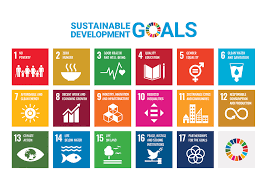
The Importance of Sustainable Living
In today’s world, the concept of sustainability has become increasingly important as we face environmental challenges such as climate change, resource depletion, and pollution. Sustainable living is about meeting our current needs without compromising the ability of future generations to meet their own needs.
One key aspect of sustainable living is reducing our carbon footprint by minimizing energy consumption and utilizing renewable energy sources. This can include using solar panels, wind turbines, and energy-efficient appliances in our homes.
Another crucial element of sustainability is conserving natural resources such as water and forests. By practicing water conservation techniques like rainwater harvesting and reducing waste through recycling and composting, we can help preserve these vital resources for the future.
Sustainable living also encompasses promoting biodiversity and protecting ecosystems. Planting native species in our gardens, supporting organic farming practices, and reducing pesticide use are ways in which we can contribute to a healthier environment for all living beings.
Furthermore, sustainable living extends to our daily choices such as opting for eco-friendly products, reducing single-use plastics, and supporting ethical businesses that prioritize environmental stewardship.
By adopting sustainable practices in our lives, we not only help safeguard the planet for future generations but also improve our own well-being by living in harmony with nature. It is up to each one of us to make conscious choices that promote sustainability and create a more resilient and thriving world for all.
7 Essential Tips for Embracing a Sustainable Lifestyle: Minimizing Waste and Conserving Resources
- Reduce, reuse, and recycle to minimize waste
- Conserve water by fixing leaks and using it wisely
- Switch to energy-efficient appliances and light bulbs
- Support local and organic food production
- Use public transportation, carpool, or bike instead of driving alone
- Plant trees and support reforestation efforts
- Choose reusable items over single-use plastics
Reduce, reuse, and recycle to minimize waste
Reducing, reusing, and recycling are essential practices in promoting sustainability and minimizing waste. By reducing our consumption, reusing items whenever possible, and recycling materials to give them a new life, we can significantly decrease the amount of waste that ends up in landfills. This simple yet powerful mantra not only conserves resources and energy but also helps protect the environment by reducing pollution and greenhouse gas emissions. Embracing the principles of reduce, reuse, and recycle is a practical way for individuals to make a positive impact on the planet and contribute to a more sustainable future for all.
Conserve water by fixing leaks and using it wisely
Conserving water is a crucial aspect of sustainable living. By promptly fixing leaks in faucets, pipes, and irrigation systems, we can prevent wastage of this precious resource. Additionally, using water wisely by taking shorter showers, turning off the tap while brushing teeth, and collecting rainwater for outdoor use can significantly reduce our water consumption. These simple yet effective practices not only help conserve water but also contribute to environmental sustainability by minimizing the strain on water sources and promoting responsible resource management.
Switch to energy-efficient appliances and light bulbs
Switching to energy-efficient appliances and light bulbs is a simple yet impactful way to promote sustainability in our daily lives. Energy-efficient appliances consume less electricity, reducing our carbon footprint and lowering energy bills. Similarly, using LED or CFL light bulbs not only saves energy but also lasts longer, reducing waste. By making these small changes, we can contribute to conserving resources and mitigating climate change while enjoying the benefits of cost savings and a more environmentally friendly home.
Support local and organic food production
Supporting local and organic food production is a key way to promote sustainability in our food system. By purchasing locally grown produce, we reduce the carbon footprint associated with transporting food long distances, support local farmers, and strengthen our community’s economy. Additionally, choosing organic foods helps minimize the use of harmful pesticides and synthetic fertilizers, promotes soil health, and protects biodiversity. By making conscious choices to support local and organic food production, we can contribute to a healthier environment and foster a more sustainable food system for future generations.
Use public transportation, carpool, or bike instead of driving alone
Utilizing public transportation, carpooling, or biking instead of driving alone is a simple yet effective way to reduce carbon emissions and promote sustainable living. By sharing rides or opting for alternative modes of transportation, we can help alleviate traffic congestion, lower our individual carbon footprint, and contribute to cleaner air quality in our communities. Making the choice to commute in a more eco-friendly manner not only benefits the environment but also encourages a shift towards more sustainable transportation practices for a greener future.
Plant trees and support reforestation efforts
Supporting reforestation efforts by planting trees is a powerful way to contribute to a sustainable future. Trees play a crucial role in combating climate change by absorbing carbon dioxide, purifying the air, and providing habitats for wildlife. By planting trees and supporting reforestation projects, we can help restore ecosystems, mitigate the impacts of deforestation, and create a greener and healthier environment for generations to come.
Choose reusable items over single-use plastics
Opting for reusable items over single-use plastics is a simple yet impactful way to practice sustainability in our daily lives. By choosing reusable water bottles, shopping bags, utensils, and containers, we can significantly reduce the amount of plastic waste that ends up in landfills and oceans. Making this small switch not only helps protect the environment and wildlife but also saves resources and energy used in the production and disposal of single-use plastics. Embracing reusables is a conscious choice that contributes to a cleaner, greener future for our planet.
